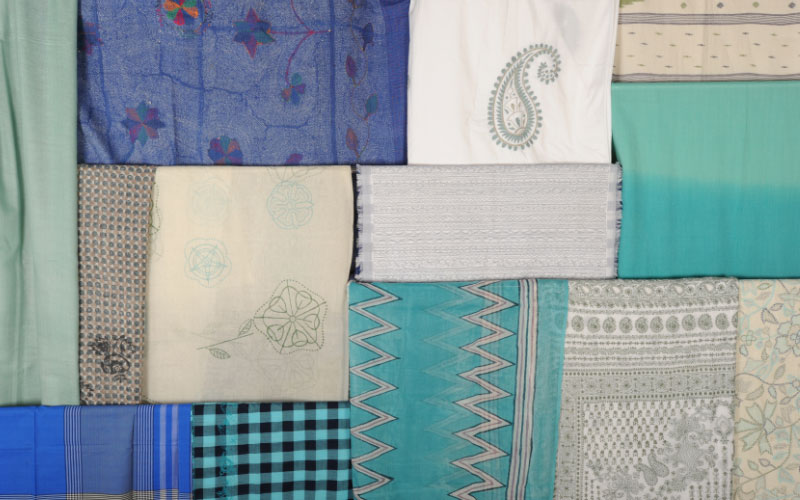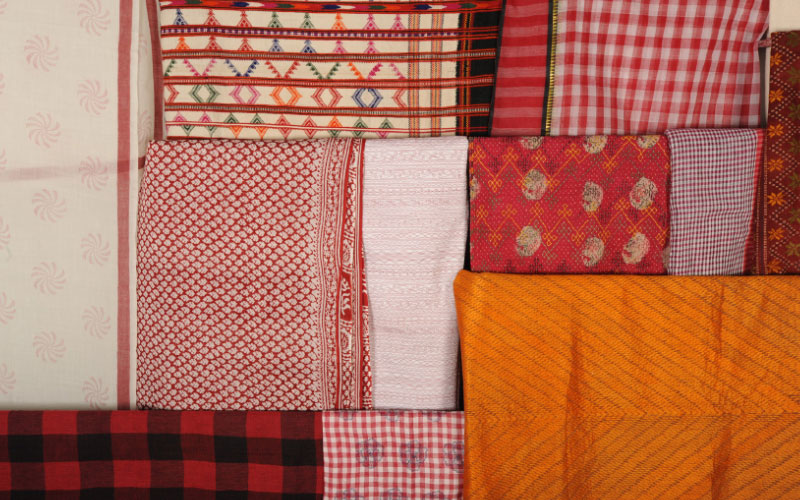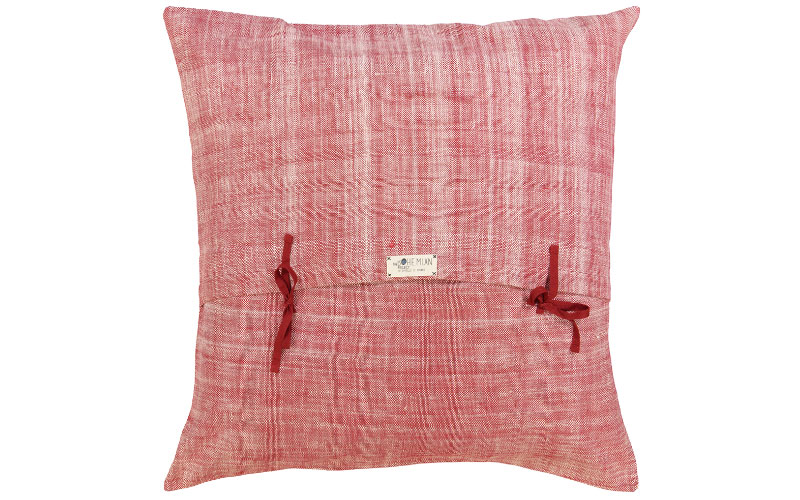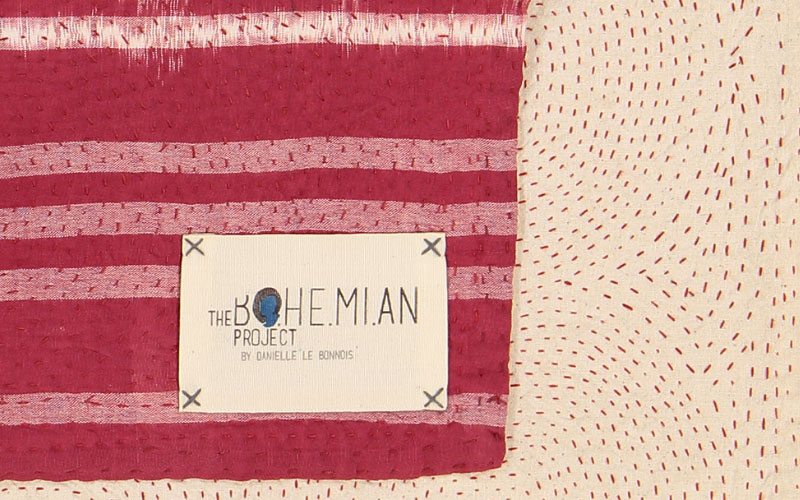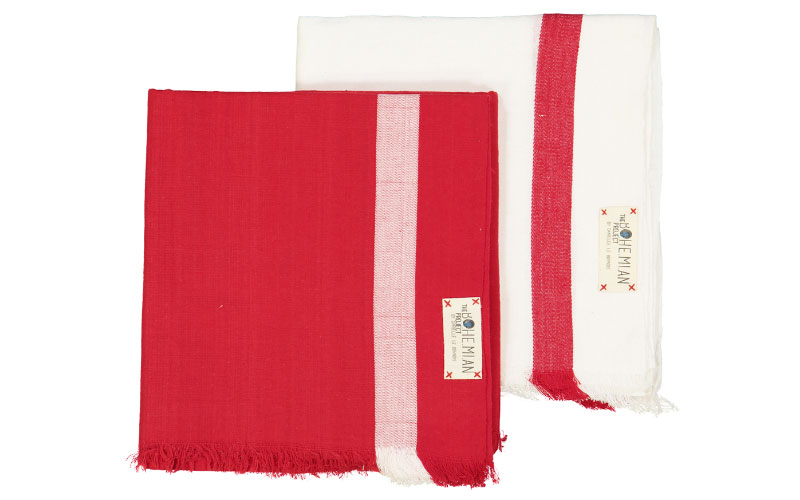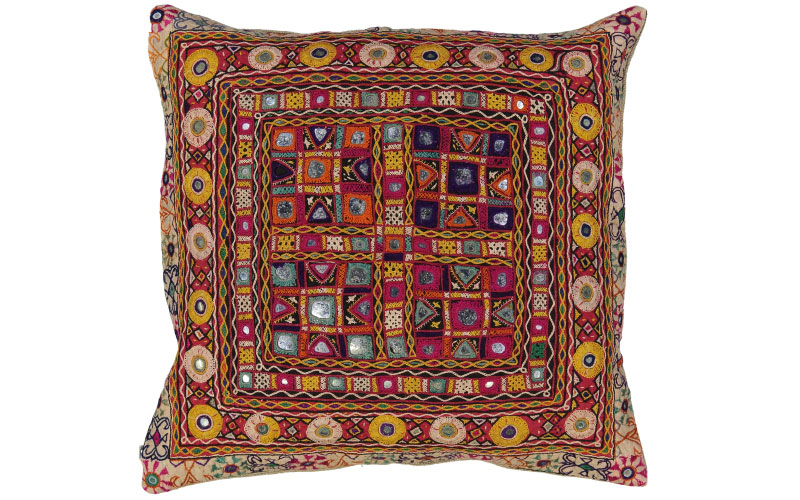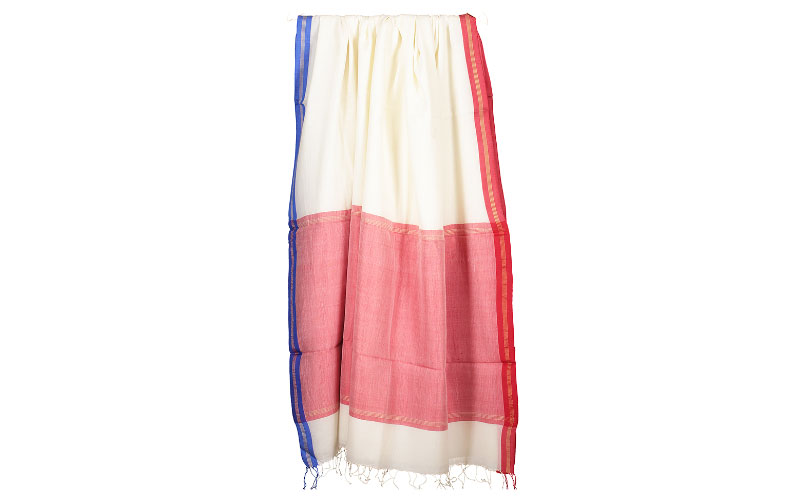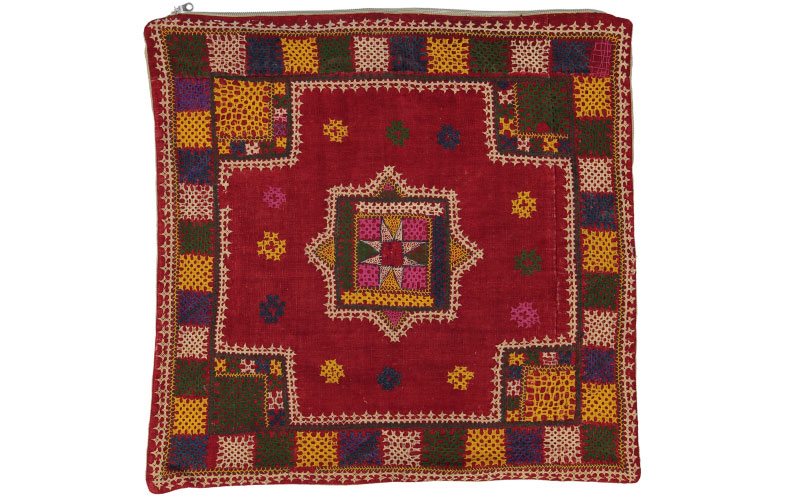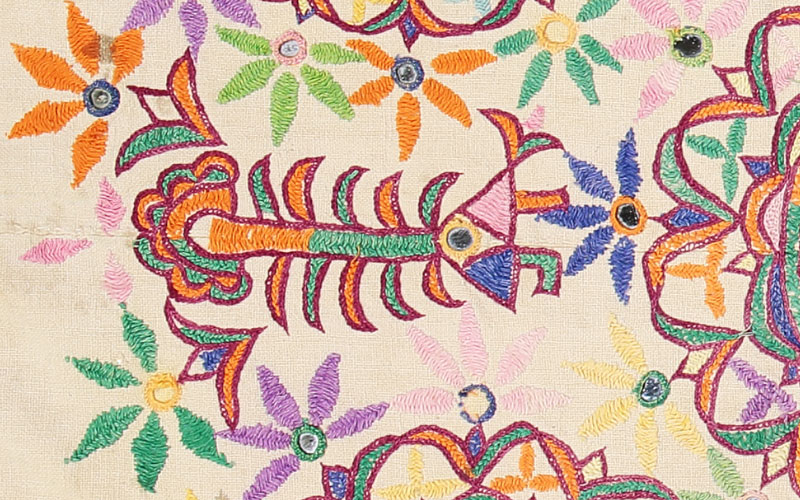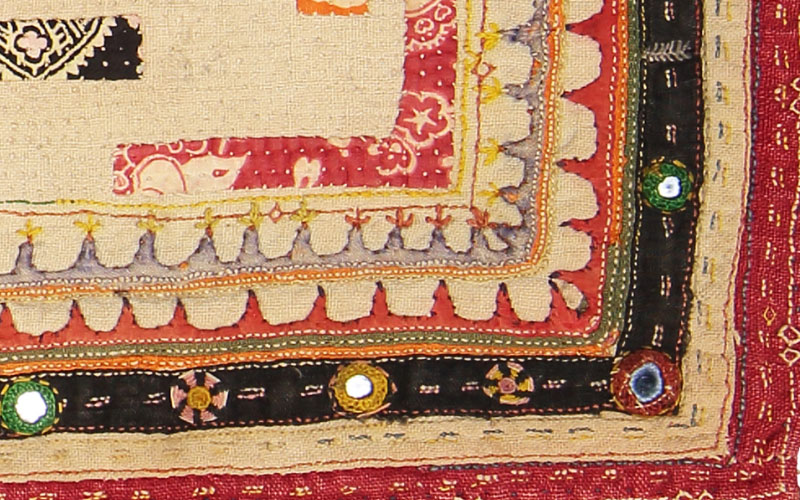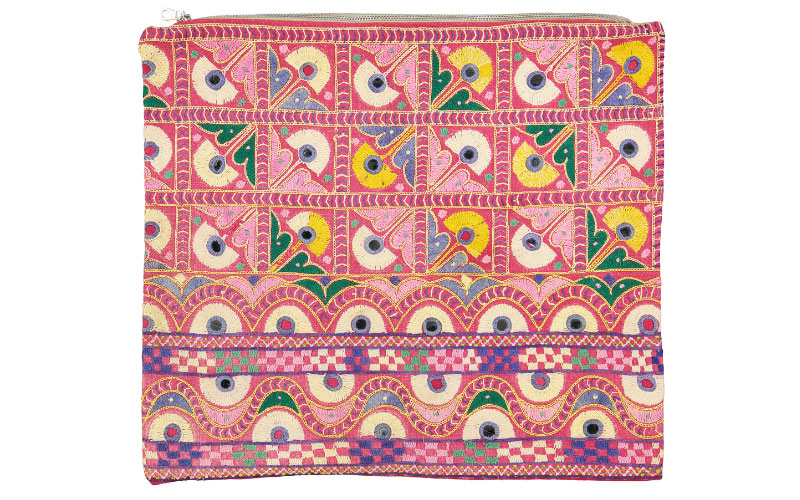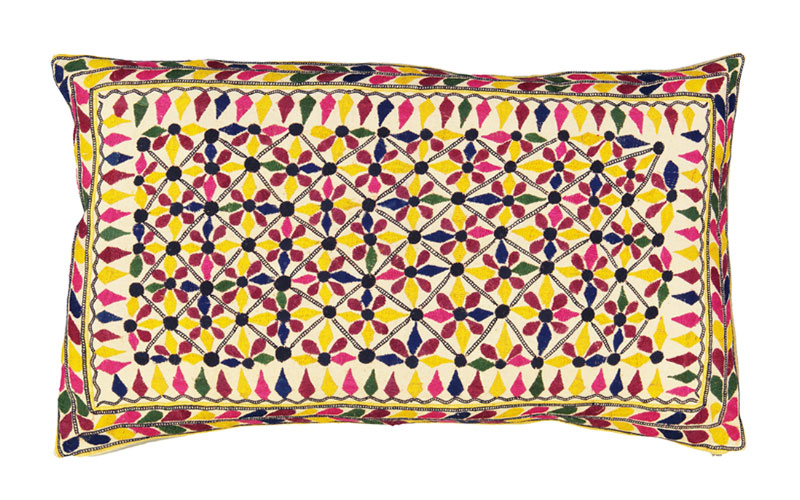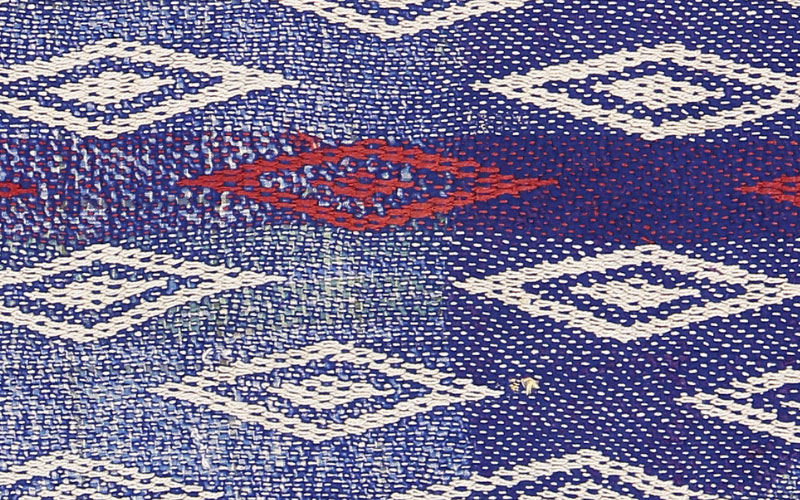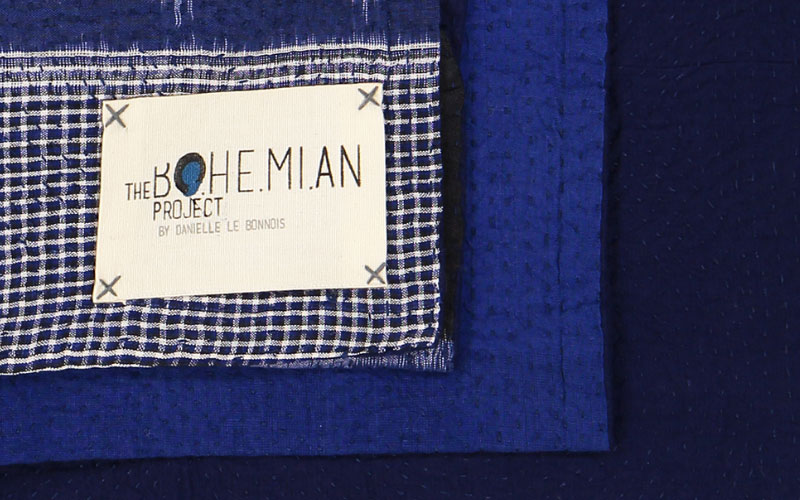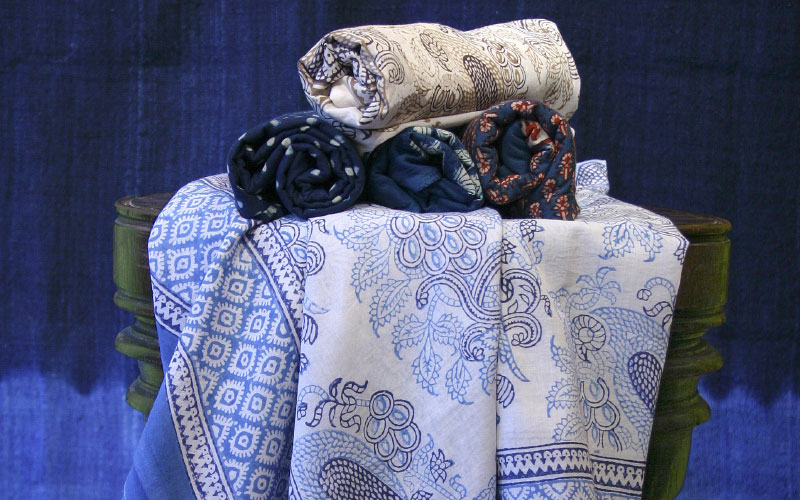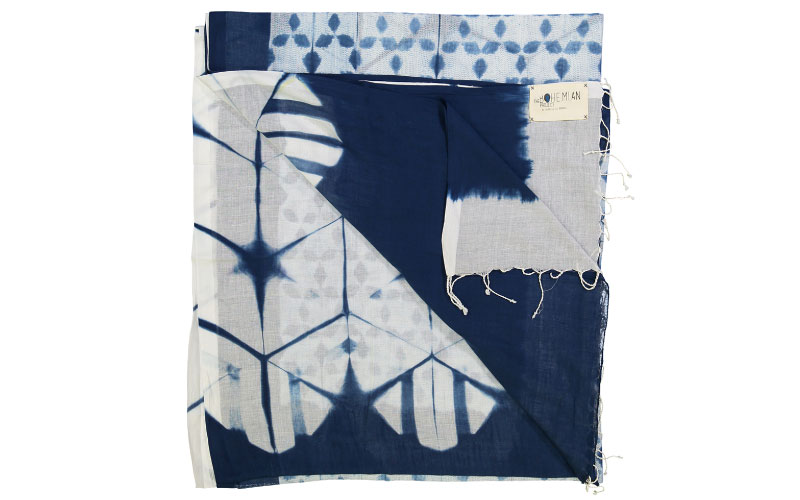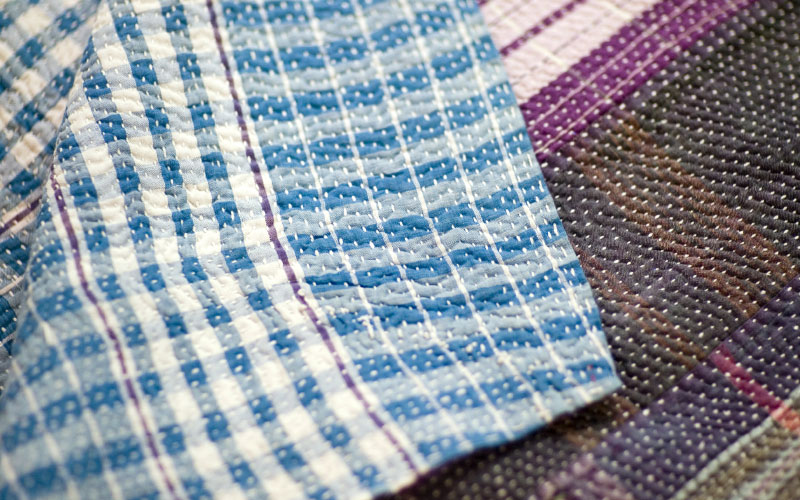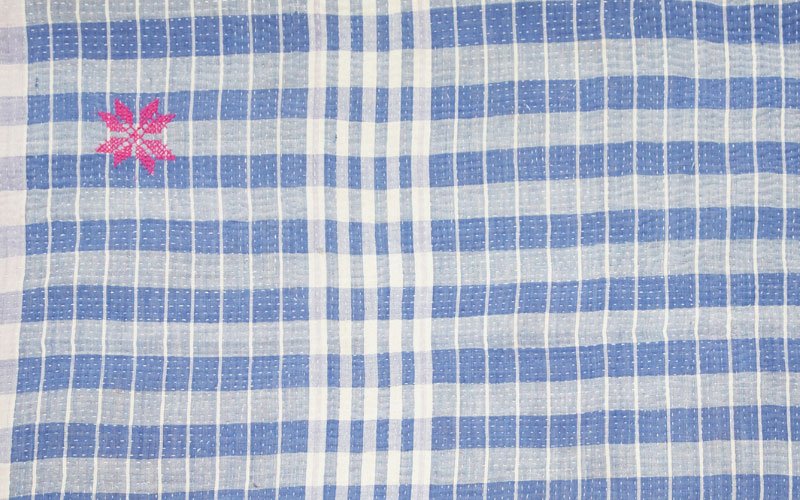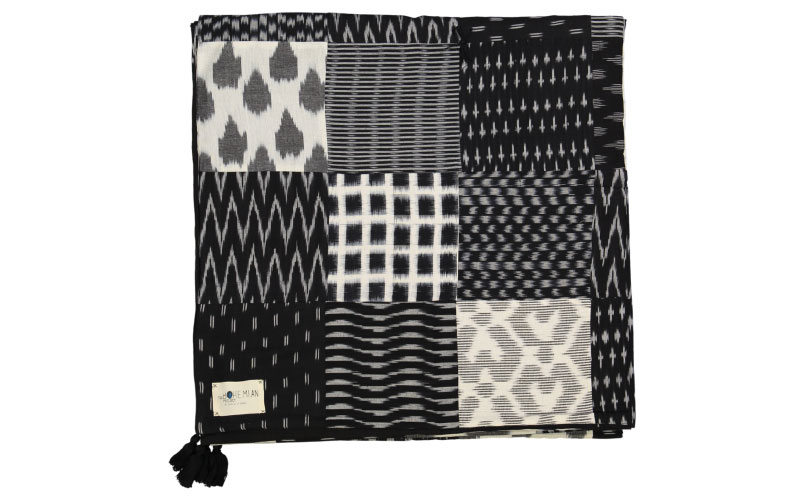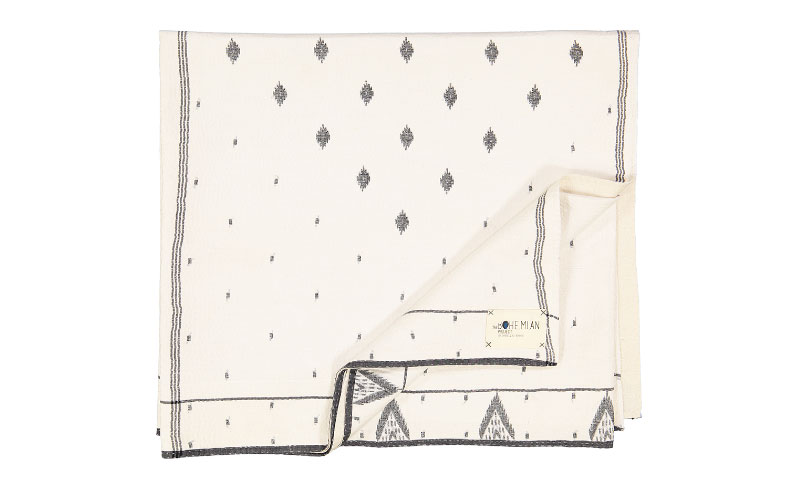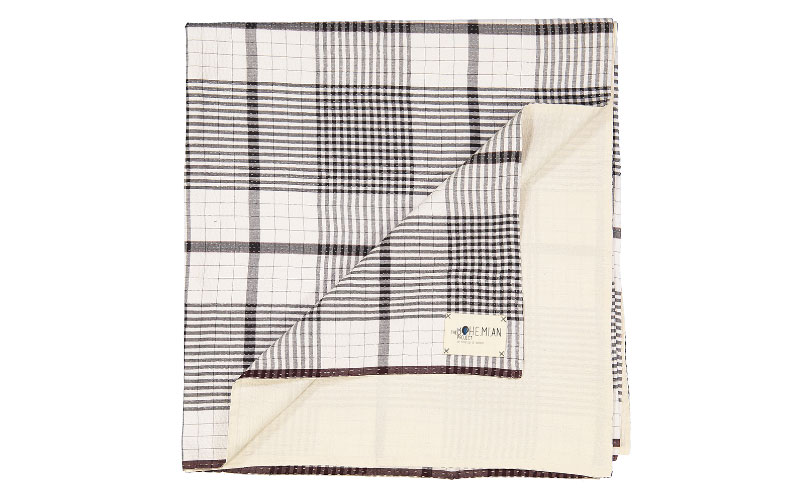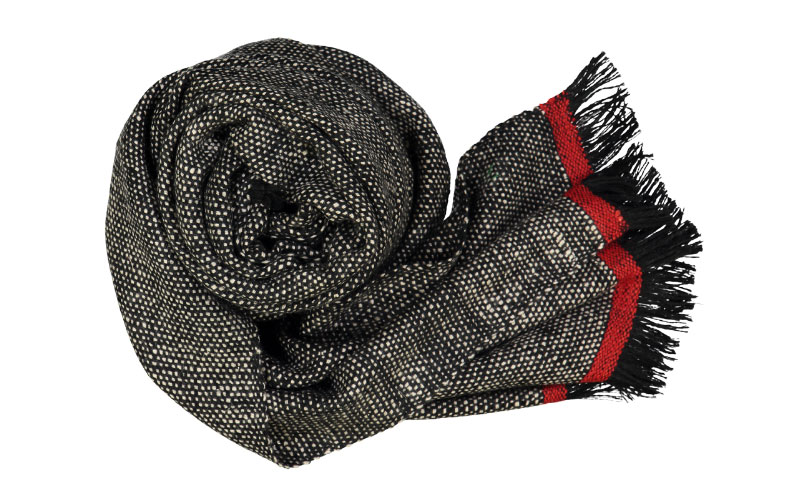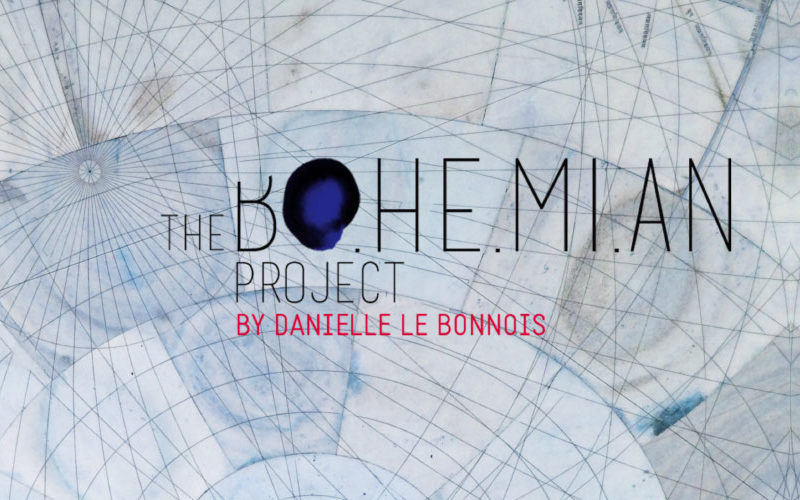


The BO.HE.MI.AN Project brand was created by Danielle Le Bonnois in 2014 as the fruit of an experiment that began twenty years ago when Danielle, a lover of textiles and hand-embroideries, embarked on a journey across the breadth of India to meet specialized artisans preeminent in this field.
These distinct lines of home textiles are the result of meticulous work by a group of individual craftsmen. It is a close collaboration between Danielle and her hand-picked weavers, embroiderers and Indian printers who employ traditional techniques handed down for centuries, manifested here with a contemporary inspiration, as suggested by their French partner. The endeavor is to give a new life to traditional practices that are at risk of becoming obsolete in the modern world. This is made possible by helping them find their niche in the changing market by adapting their aesthetics for the global consumer.
In essence, the core philosophy of The BO.HE.MI.AN Project, it is to combine ‘tradition with modernity’.
Offering sustainable products, beyond the dictates of fashion and fleeting trends, the BO.HE.MI.AN Project offers products that are enduring in both quality and design. Their products reflect the shifting attitude towards consumption, which is to buy fewer products of fine quality that are made to last.
Another focus here is the emphasis on ‘made by hand’. A majority of common, simple articles whose unavoidable irregularity is the proof of labor and the inherited skills of a man’s hands stand in sharp contrast to the benign perfection of objects made in chain. Each piece that is made by hand is one of a kind, and thus, uniquely valuable.
The true singularity of the brand resides in its very credo- a traditional production process that is combined with contemporary design, deliberately refined as Danielle loves and knows well. It is a collection that does not simply make a vacation memento, but whose appeal lies in its timelessness.
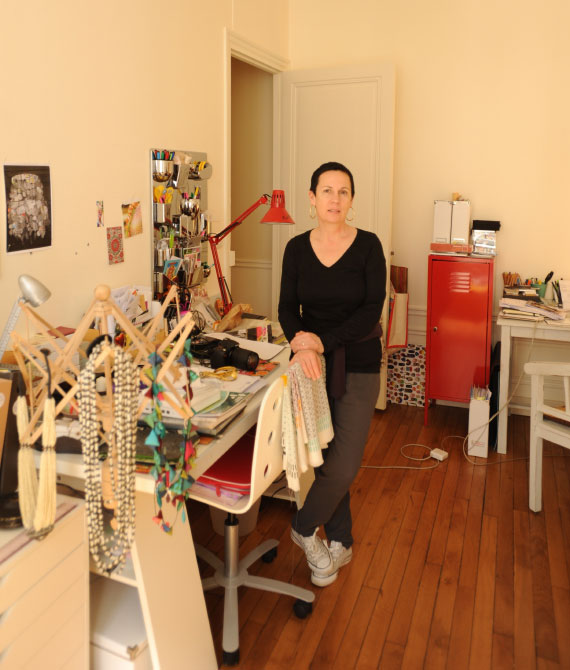


The collection includes beautiful pieces like saris fabricated of cotton and made sumptuous by their gold or colored borders or ‘paloo’, worn by Indian women with much pride but here given a new purpose as resplendent curtains, or covers for bed and sofas….
A different production
The pieces you will be able to select from are not the results of simple ‘orders’, bound by strict schedules and standard practices of quality control. Our process entails locating and meeting the artisans, each skilled in his own specialty and not yet under the purview of an invasive mass market. Every artisan is presented with our novel approach and convinced to work us and in line with our vision, often a challenging task itself when working with ardent traditionalists. On our part, we agree to their timelines, seemingly long and often fluid, a departure for us who live in a society where speed is a measure of efficacy and where the slightest delay is regarded as a failure in the process. We have taken a more personal and practical approach to our production process, adapting to the local sensitivities.
We take the time to meet and discuss with each artisan, to not only explain our vision and process but also to forge personal relationships and build trust. We have learnt to be patient on the first tries, to manage the endless cycles of sample creation, and often, the disappointments that come with each attempt, only to then convince the craftsmen and even ourselves to start over and over again until our vision is fully realized.
By the end of each production, we are left with the mutual satisfaction of the beautiful work created, and of the close working relationship that has been developed, lending more meaning to the time spent together.
Producing such products is a gamble itself, offering them for sale is another one. We are convinced, however, that there has always been, and will always be, a market comprising those who appreciate exquisite things, who recognize quality and the singularity of pieces they desire.
They are joined by others, disenchanted with excessive and often mediocre consumption, who prefer to invest on products that they would not want to replace tomorrow, but would want to keep forever; because, often ‘fewer’ translates to ‘better’.
Simplicity will be the luxury of the 21st century…

